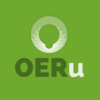Example of a collaborative wiki development
This page was constructed to provide an example of an open collaborative development to generate ideas and strategies for the OERu 2012 prototypes. This page:
|
Context
The course materials were developed as a collaborative project by volunteers from the OER Foundation, WikiEducator, the OpenCourseWare Consortium and Creative Commons with funding support from UNESCO.
Volunteers were distributed around the world and there were a diversity of volunteer contributions including subject expertise, learning design contributions, editorial work and assistance with layout and wiki editing. Volunteers contributed according to their skills and interests.
A key feature of this OER remix was the requirement for the materials to be released under a Creative Commons Attribution license which has implications for selecting what materials could be remixed due to license incompatibilities for the derivative work. The materials used for remix were sourced from a variety of sources.
Overview of the design and development process
|
Wiki developments can accommodate iterative and agile development process and do not follow a conventional linear or production model, for example: Content experts passing materials onto learning designers and then final production editing. Many processes take place in parallel with each other and the detailed edit history of a wiki can accommodate this self-organizing development approach. Nonetheless, there are distinctive phases which were followed as the development matured:
- Initial international webinar to discuss the project and brainstorm ideas. All project related information was documented in the wiki, see for example: Agenda and minutes
- A brainstorm list was maintained for the duration of the project for anyone to contribute ideas and suggestions.
- Reflections on the target audience to help inform the development team.
- Compiled an inventory and review of existing OER resources for remix. (This project was restricted to using CC-BY materials as a prerequisite to maximise downstream reuse.)
- Developed a draft outline for the course materials. This was basically an annotated table of contents. This step is extremely important in order to save time later in the process when setting up pages and sub-pages for the learning materials to avoid unnecessary reconfiguration of the content. Short, modular pages improve remix options for other purposes but also delivery for a variety of technologies using the same source, eg print, wiki, LMS, blog sites etc.
- Proposed a few straw dog ideas to illustrate layout and ideas for learner-content interactions. This is the equivalent of developing a representative sample of learning materials to refine the design and identify any technology related problems.
- At this point the structure of the wiki pages for the course outline were created. See for example the introduction subpage of the Why Educators Care tutorial which eventually looked like this when completed.
- After creating the page structure in the wiki, we inserted the navigation templates. See for example
- Then the authoring of the pages, for example:
- Early draft
- More progress
- and finally
- see also a full history of the development of this page.
- Style guidelines for the Language edit and the Layout and design were established in the wiki.
- Create "portal" course page and subpages for wiki-based delivery of the #OCL4Ed course
- Created parallel version for the LMS (in this example, Moodle).
Team communication
- The majority of design and development communication took place in the wiki because it's important for all developers to know what is happening.
- This particular development used two synchronous webinars, however the main developers were experiences wiki users and working across awkward international time zones, the wiki was preferred as communication vehicle for the project.
- A project planning page was set up to provide an over of the design and development status.
- The main technology for design and development discussions used the corresponding wiki talk pages. See example 1 and example 2
- There were occasional email communications, live chat, and audio chat among developers particularly when clarifying complex questions and usually a summary would be posted on the relevant talk page for the benefit of the open community.
